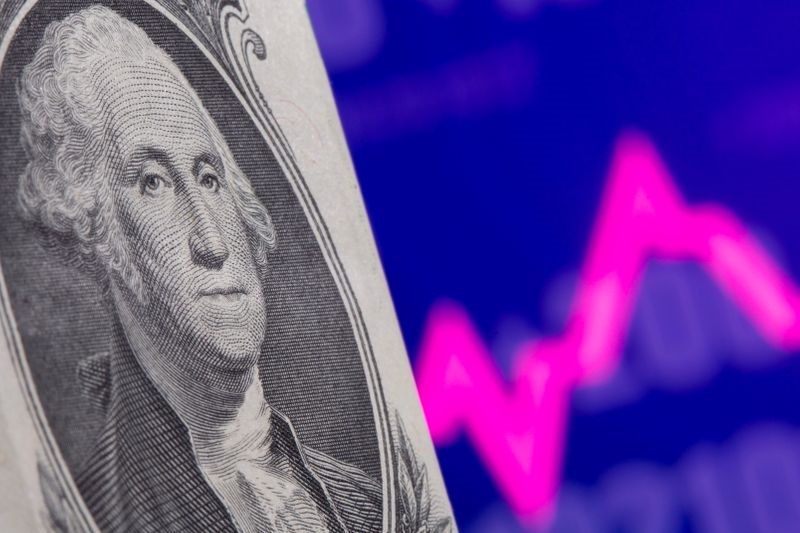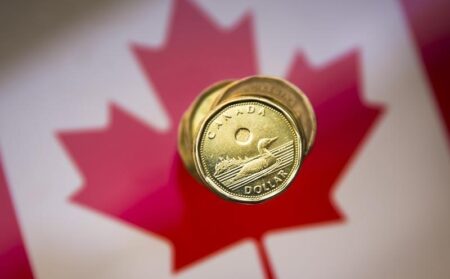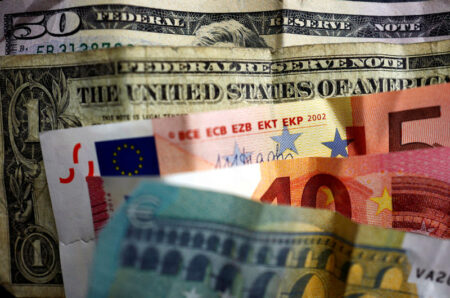Investing.com — Most Asian currencies rose on Tuesday, while the dollar sank amid growing bets that the U.S. Federal Reserve was close to concluding its rate hike cycle, with focus also turning to upcoming inflation data for more cues.
The dollar languished at a two-month low against a basket of currencies, coming under pressure from speculation that the Fed had limited headroom to keep raising rates. This notion was furthered by comments from Fed officials, as well as weaker-than-expected labor data released last week.
The and fell about 0.2% each, extending steep losses from last week. But markets are still pricing in an by the Fed in a late-July meeting.
Weakness in the dollar spurred gains in most risk-heavy Asian currencies, offering some relief to them after sharp losses through most of the year. The rose 0.3%, moving further away from a recent seven-month low, while the rate-sensitive added 0.4%.
Chinese yuan rises past disinflation fears, stimulus in focus
The rose 0.3% to a two-week high on Tuesday, benefiting from a strong daily midpoint fix by the People’s Bank of China (PBOC).
A series of strong midpoint fixes, which were aimed at defending the yuan, helped the currency remain stable despite a substantially weaker-than-expected on Monday. Data showed that consumer spending was on the cusp of entering disinflation, which bodes poorly for the Chinese economy.
Focus is now on stimulus measures from the Chinese government to shore up a slowing economic recovery. But these measures, particularly more interest rate cuts by the People’s Bank of China, could further dent the yuan.
Still, optimism over China spilled over into other Asian currencies, given their dependence on China as a major trading partner.
The added 0.2%, also benefiting from data showing an improvement in . Westpac Bank said in a note that the Reserve Bank of Australia is set to hike rates at least two more times this year – a scenario that benefits the dollar.
CPI inflation, Fed speakers on tap
Markets were now awaiting key due on Wednesday, as well as a string of Fed speakers this week, including and .
Wednesday’s reading is expected to show that while inflation fell in June, still remained high, keeping inflation expectations elevated.
High inflation is likely to attract more rate hikes from the Fed, although given that the labor market is now cooling and that inflation has still fallen from 40-year peaks, analysts questioned just how much headroom the central bank still has to keep raising rates.
Read the full article here












